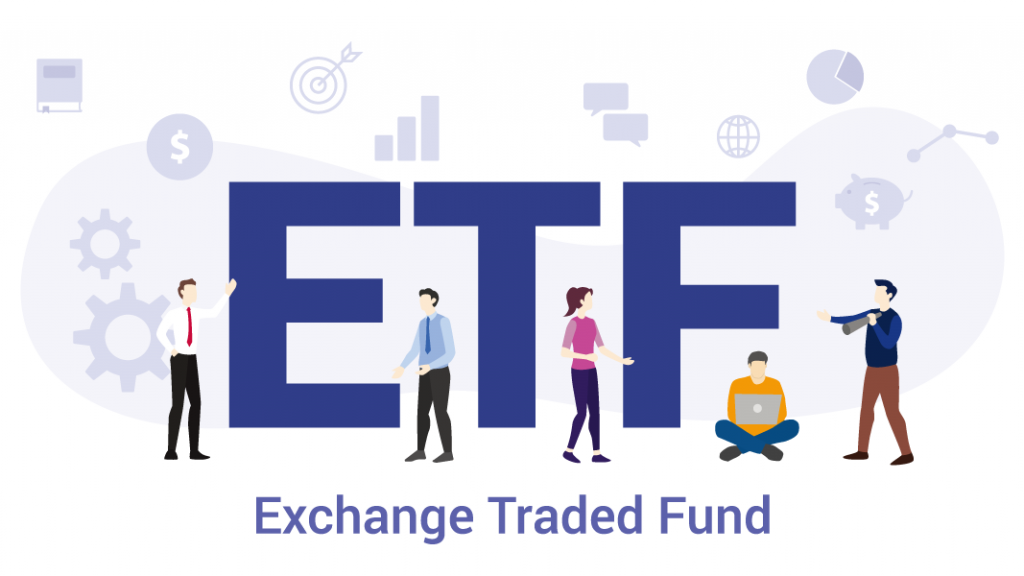Do you want to boost and even multiply your savings? Usually, if you save your money in a bank account, you can only earn up to 1 to 1.8% interest rate annually. Many banks provide low interest rates for savings accounts. However, instead of relying on your saving’s interest rate, you can boost your savings through multiple secure and easy investments.
If you’re new to investing, you might find the jargon and investment plans confusing. Fret not, as we’re here to guide you in your investment journey! In this article, we have provided some of the most common and secure investment methods in Malaysia. Let’s check it out!
1. Fixed Deposit (FD)

A Fixed Deposit (FD) account has your savings kept for a period of time to generate interests. Although you’re not encouraged to withdraw money from your FD account, FD is a popular investment method in Malaysia and is definitely worth considering.
This is because generally, FDs offer 3% to 4% interest rates, which are higher than savings accounts. FDs also provide loyalty rewards, high returns, and easy management. Furthermore, FDs are protected by government insurance.
The maturity period of FD ranges from a month to five years. Of course, the interest rates of long-term FD are typically higher than that of short-term FD. If you happen to withdraw money from you FD account before the maturity date, you will risk terminating your FD account and lose all the predetermined interests.
There are two types of FD investment in Malaysia, namely the Conventional FD and the Islamic FD. Regardless of the bank’s performance, a Conventional FD will pay you the predetermined interest rates. On the other hand, the amount of interests you receive from an Islamic FD depends on the bank’s performance.
The minimum deposit required to open an FD account ranges from RM1,000 to RM5,000. To invest via FD, you need to make sure that you have enough minimum deposit. Then, research on the latest FD plans offered by different banks and visit the bank of your choice.
Don’t forget to bring along your identity card (Mykad) to the bank. You can prepare your minimum deposit in the forms of cheque or cash. Other than that, you can also perform online transactions to transfer your minimum deposit to your FD account.
2. Unit Trust

A unit trust is a collective investment method that uses funds from multiple investors to hold portfolios and generate profit. In sum, unit trusts have investors of the shared interest pool and invest funds in a portfolio.
Investors will receive rewards based on their contributions when a portfolio successfully generates profit. The more you invest, the more you earn.
The portfolios usually include deposits, shares, cash, bonds, real estate, properties, or commodities. It is divided into units of different sizes, which are then sold to investors.
If you doubt the security of this investment method, unit trusts are managed by professional fund managers. That being said, investors with varying capitals have equal chances in investing in diverse and professionally managed portfolios.
The four types of unit trusts are equity funds, fixed income, money market funds, and balanced funds. Equity funds concern the listed stocks in Bursa Malaysia, where performance is dependent on the market movements. Fixed income has its investor loan to the government and corporates.
Money market fund involves short-term and highly liquid cash equivalent securities. On the contrary, balanced fund contains a mixture of low and high-risk funds that include the other three types of unit trusts.
Generally, the minimum investment amount for unit trusts ranges from RM100 to RM1,000. However, you should expect additional charges such as platform fees, sales charges, trustee fees, annual management charges, among others.
These extra charges can decrease your profits. Online unit trust platforms may allow you to enjoy fewer charges, such as Fundsupermart.
Before investing in a unit trust, be sure to check the portfolio’s performance history of multiple banks and estimate their rates of returns.
Besides visiting a bank, you may also invest in unit trust funds via the bank’s online platform.
3. Investment-linked Insurance Plan (ILP)

The nature of investment-linked insurance plan (ILP) is self-explanatory: it involves a policy that provides both insurance coverage and investment components. In this case, most of your premiums are used for the usual coverage, while a portion of the premiums is to be invested.
A common investment of ILPs the unit trust funds. As explained in the previous section, this means that a fund manager will professionally manage the invested premiums.
Similar to most unit trust funds, the amount of your returns is dependent on the portfolio’s performance. To cater to investors of varying capitals, an ILP often comes with different fund options.
There are two types of ILPs, namely a regular-premium plan and a single-premium plan. The former enables you to make payments in intervals throughout the coverage period. In contrast, the later requires you to make a one-off payment for the entire coverage period. If you’re interested in the single-premium plan, it is advisable to ensure that you can afford the lump sum payment required.
Here is a rule of thumb in selecting an IPL: it should possess enough flexibility. A good ILP is highly customizable, which caters to the clients’ different needs and allows changes to a large extent.
While most quality ILPs allow you to switch to different portfolios, you should remember that the process might require processing fees. Also, if you make changes to your insurance coverage, you will alter the amount invested in the portfolio.
4. Exchange Traded Fund (ETF)

Similar to unit trust funds, an exchange traded fund (ETF) is a collective investment method that accumulates multiple investor’s money to purchase assets. ETF is a common investment method for those residing in Malaysia.
The investment fund is usually open-ended, with returns provided through dividends and capital appreciation. ETFs allow investors with different capitals to invest in diverse assets.
Notwithstanding, fund managers do not actively manage ETFs, as they merely track and replicate the performance of ETFs based on benchmark indexes. In other words, the fund managers of ETFs do not select stocks or assets for their clients.
Consequently, the performance of ETFs has nothing to do with fund managers as well as their predictions on the market’s performance.
The three types of ETFs are equity ETFs, fixed income ETFs and commodity ETFs, as well as Leverage and Inverse ETFs. ETFs are divided into units of different sizes. With generally lower fees, this investment method is ideal for new investors and investors with little capitals. Most ETFs charge an annual fee of less than 1%.
5. Amanah Saham Bumiputera (ASB)

Amanah Saham Bumiputera (ASB) is a unit trust fund investment that caters to Bumiputeras in Malaysia. It is a long-term investment and is managed by the subsidiary of Permodalan Nasional Berhad (PNB), Amanah Saham Nasional Berhad (ASNB).
With a fixed RM1 price/unit, ASB is relatively low-risk. To date, ASB has never offered negative returns.
ASB’s maximum investment amount is RM200,000, which attracts investors with different capitals. Furthermore, there are no redemption charges for ASB, which maximizes investors’ profits.
Before you invest, make sure that the returns outweigh the inflation rate. To open an ASB account, bring your funds and identity card to any ASB agent, which can be banks and non-banks. Agent banks include RHB, CIMB, Maybank, and Affin Bank. Alternatively, Pos Malaysia is a non-bank agent.
Some Muslims may be worried about whether ASB is haram (prohibited) in Islam. Muzakarah Jawatankuasa Fatwa MKI has addressed this concern in a 2012 meeting and concluded that it is not specified in Islamic teachings.
The Shariah panel in the PNB is responsible for reducing investments in cases where a fund’s investments are considered haram. So, Muslims can invest in ASB worry-free.
This sums up the investment methods in Malaysia. While these methods are usually secure, it is vital to note that they are not entirely risk-free.
You should consider both your risk appetite and your financial circumstances when you plan your investments. While it is true that higher risks lead to higher returns, you should ensure that you can afford the financial risks of your investments.
Here is a useful tip: it is better to invest in diverse portfolios so that you have other sources of profits when one investment project fails.
If you enjoyed reading this article, there are more finance-related articles on LokaPost!






